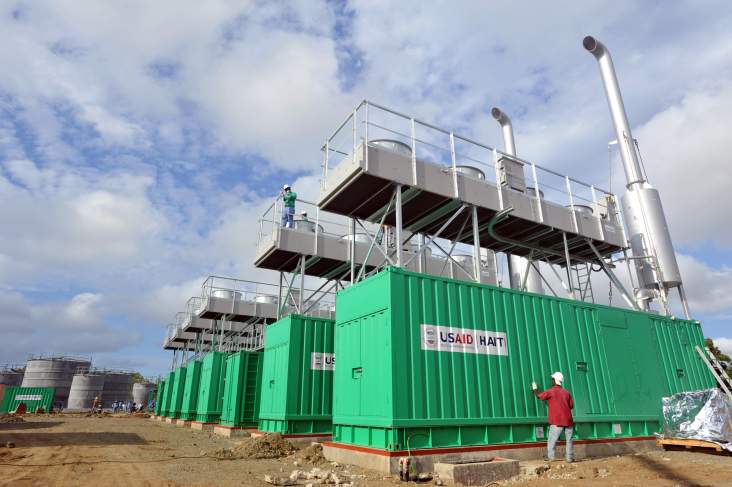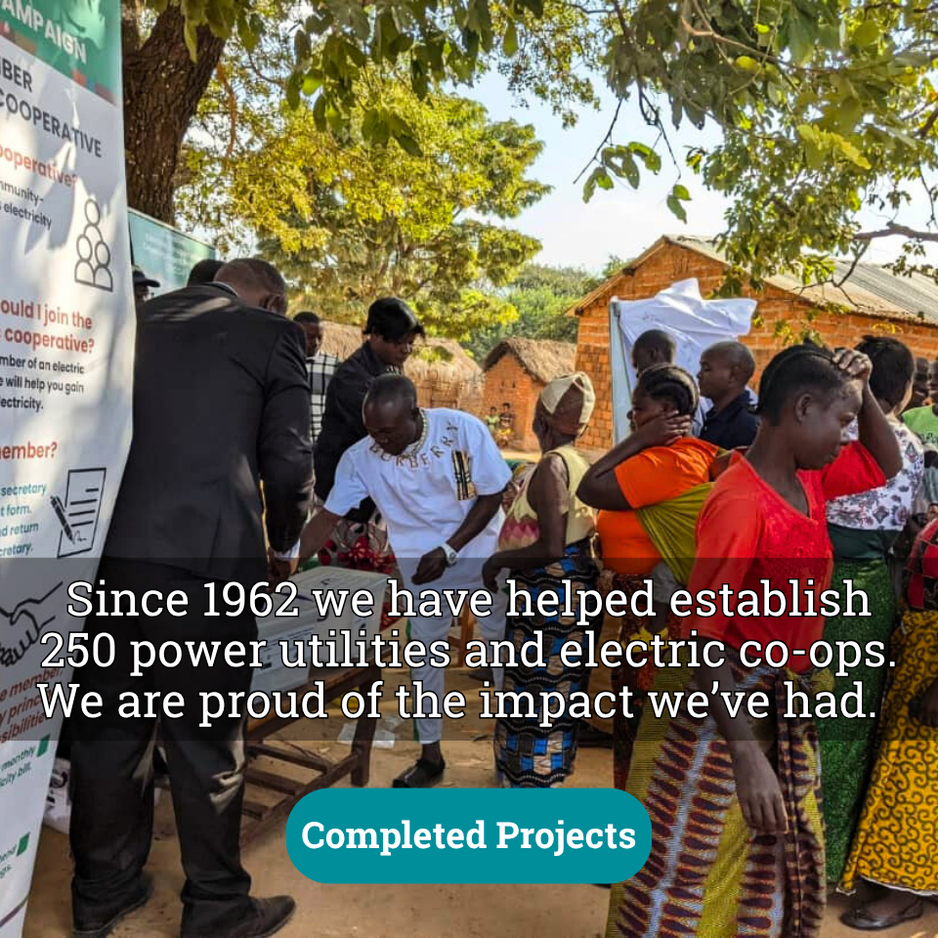NRECA International promotes the electric cooperative model as the best way to bring energy services to rural areas in developed as well as developing economies. Electric cooperatives have the power to harness innovation, community self-interest, and mutual self-reliance to overcome significant economic obstacles to long-term sustainability.
Our legacy of forming and supporting some of the largest and most successful cooperatives in the world spans more than half a century, benefiting more than 220 million rural people, all committed to helping their neighbors get that last mile of electric service.
OUR COOPERATIVE DEVELOPMENT WORK
COOPERATIVE DEVELOPMENT RESOURCES
More than 700 million people in the world do not have access to electricity. The electric co-op business model is often overlooked as a viable option to provide lasting electric service to rural communities. However, history has shown that electric cooperatives can become engines of community economic development; thousands of very successful electric co-ops provide service to more than 220 million people.
Access the following useful resources that demonstrate the lasting impact of electric cooperatives.
OUR IMPACT
In 1980, about 13,000 people living in the rural areas of Bangladesh had access to electricity. By the end of that year, the Bangladesh Rural Electrification Board (BREB) and 13 electric cooperatives PBS (Palli Bidyut Samities )were formally established. Today, 80 PBSs serve more than 100 million people across the country. A 2002 study documenting the benefits of rural electrification in Bangladesh found that the average annual income of households with electricity was 126 percent higher than those households without electricity.
Building Bangladesh with the U.S. Co-op Model
This household income growth is tied directly to the creation of electric cooperatives built decades ago with the help of NRECA International through a U.S. Agency for International Development (USAID) program launched under the Kennedy Administration.
The cooperative enterprise model that proved to be so successful in Bangladesh and other countries like the Philippines and Bolivia is being deployed in many developing countries around the world, including many where the economic and quality of life circumstances are dire and the challenges immense.
Celebrating 50 years of rural electrification in the Philippines
Together with our partners, we remain committed to helping communities use the cooperative model to build lasting connections, gain a more effective voice in their cooperative and, in turn, build stronger economies.
USAID’s Cooperative Development Program
NRECA International used funding from the former USAID’s Cooperative Development Program (CDP) to promote the electric cooperative model as a proven system for delivering electricity services to rural areas of developing countries. While the agency has ceased operations, we are very proud of the work we have done.






